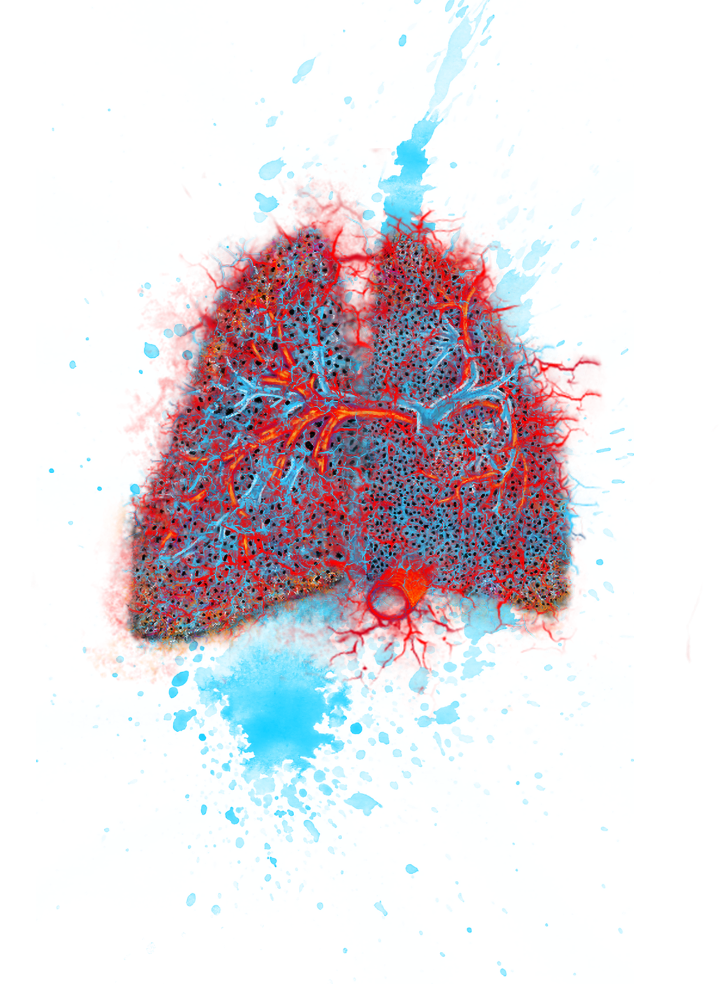Martina (MPA)
and Maresa
(GPA),
Germany
How do the different ANCA-associated vasculitis treatments work?
Generally you will be prescribed a combination of therapies to treat your AAV. These therapies act to reduce the uncontrolled inflammation and organ damage associated with AAV.1
Although treatments can help you to manage symptoms, they can also cause side effects and, in some cases, affect your immune system’s ability to fight bacteria and germs,1 which means you may be more likely to get sick.
If you are experiencing side effects from your medication, it is important to speak to your doctors to see what can be done to help you manage these.
Read more
Patricia -
Vasculitis, Ireland
General tips (when receiving treatment for AAV)
Steroids
Rituximab
Cyclophosphamide
Methotrexate (off-label use)
Mycophenolate mofetil (off-label use)
Avacopan
Plasma exchange
Azathioprine (off-label use)
References and footnotes
Why are ongoing clinic visits needed?
Ongoing clinic visits allow your doctors to check that your disease is under control and monitor you for any signs of relapse or new organ involvement.1
Urine testing is typically performed at each visit to screen for infection, kidney problems or bladder complications. Every 1–3 months, your inflammatory markers and renal (kidney) function will be measured to monitor your disease.1
You will also have blood tests to monitor blood count and liver function so your doctors can see how your medication is affecting your body.1 Patients on glucocorticoid therapy should also have their blood glucose measured periodically.1
If you have a relapse, you will usually have to repeat induction therapy again.2
Actively monitoring your AAV
Actively monitoring your AAV between visits can help you better understand your disease and can help your spot the signs of any possible relapses. Some people do this by keeping a diary to track their symptoms. By keeping a diary this will help you to discuss your AAV with your doctors.
Hermann - GPA, Germany
You can write in your diary each day or just use it when your circumstances change. Topics that may be useful to include are your symptoms, treatment, side effects, and AAV's impact on your everyday life.
Use your diary to write out questions for your doctor.
If your doctor recommends it, you may also wish to actively monitor you AAV by checking your blood pressure regularly (such as once a week).
References and footnotes
How can I manage my self-care needs?
It can be difficult to manage your daily AAV self-care needs and challenges. Staying organised and on top of these tasks can help improve your overall health and wellness.1
Self-care can involve requests from your doctor, as well as steps you need to take to manage your AAV between
visits.2–4

References and footnotes
How can goal setting help?
Many people with AAV find that setting goals helps them become a more active participant in their disease management by giving them short- or long-term targets to aim for.
Shanali, Artist, Rheumatologist, Vasculitis patient - UK
Realistic goal setting
Realistic goal setting is important to avoid disappointment or frustration, and your doctors will be able to discuss which goals might be suitable for you, based on factors such as your disease, treatment, and personal, social or professional ambitions.
Shanali, Artist, Rheumatologist, Vasculitis patient - UK

General tips (when receiving treatment for AAV)
AAV treatments can have many side effects, so here are some tips designed to help your body be in the best condition possible when receiving treatment:2–4
-
Minimise possible situations where infections may be more common, like nurseries, hospitals and airplanes. When you need to attend appointments in clinics or hospitals ensure you protect yourself with a face mask and disinfectant
-
Try to decrease stress in your life by finding ways to relieve stress, like meditation or yoga
-
If you smoke, try to stop (your doctor will be able to inform you if any services are available in your area)
-
Make sure to keep within sensible alcohol limits. This would be no more than 3-4 units of alcohol per day for men, and no more than 2-3 for women. One or two days a week should be alcohol-free
-
Make sure you stay up-to-date on your vaccinations, and discuss with your doctor what vaccines are suitable for you

Steroids
The steroids used to treat AAV are called glucocorticoids. They are given in a high dose at first and then gradually reduced if all is going well.1 They reduce inflammation and decrease the activity of the immune system through a few different mechanisms.3 You may receive steroids throughout your AAV treatment journey, including when you are in remission (the dose is lowered when the disease is not active) and during any periods of relapse.1
Steroids may be given as tablets or injections (only given by healthcare professionals).3,5
Tips when taking steroids2,3
-
Take tablets in the morning with breakfast to reduce indigestion, heartburn and sleeping difficulties
-
To reduce the risk of developing osteoporosis, eat foods containing calcium and vitamin D, regularly exercise and take bone strengthening drugs (your doctor should prescribe these for you)
-
To maintain a healthy weight, keep up your activity levels and adopt a healthy diet

Rituximab
Rituximab is used to treat a variety of autoimmune disease and certain kinds of cancer. It works to lower the activity of the immune system by affecting the cells which make antibodies.6
Rituximab is used when the disease is active, and as maintenance treatment when the disease is in remission.1
Tips when taking rituximab7
-
Your first infusion usually takes 4 to 6 hours so you should plan accordingly
-
Take activities - infusions last several hours so take something to help pass the time, like a book
-
Plan for your needs - for example, take a jumper to help you stay warm in case the room is chilly

Cyclophosphamide
Cyclophosphamide is used to treat a number of autoimmune conditions and cancers in different doses. However, the doses given to people with AAV will typically be lower than the ones given to treat cancer, so the side effects will be less severe.8,9
Cyclophosphamide works as an immunosuppressant, decreasing the function of various white blood cells. It is given as an infusion, injection or daily tablet.8,9 Once patients complete their course of cyclophosphamide or move onto maintenance treatment, they will usually be switched to rituximab (or occasionally methotrexate or azathioprine).1
Tips when taking cyclophosphamide8
-
Take cyclophosphamide in the morning
-
Prior, during or immediately after taking, drink plenty of fluids and go to the toilet regularly
-
Avoid grapefruit and grapefruit juice, as they can reduce the effectiveness of cyclophosphamide

Methotrexate (off-label use)
Methotrexate is an immunosuppressant, often used to treat different cancers, neoplastic diseases and psoriasis.10
Methotrexate is not clinically indicated for use in GPA/MPA, but the EULAR 2022 recommendations suggest it can be used as an alternative to rituximab in remission induction and maintenance treatment.1,10

Mycophenolate mofetil (off-label use)
Mycophenolate mofetil reduces the activity of the immune system by targeting white blood cells.11 Mycophenolate mofetil is not clinically indicated for use in GPA/MPA, but the EULAR 2022 recommendations suggest it can be used as an alternative to rituximab in remission induction treatment.1,11

Avacopan
In AAV, a specific protein in the body called a C5a receptor plays a key role in stimulating inflammation.12 Avacopan attaches to this receptor and prevents it from working, thereby reducing inflammation of blood vessels seen in these diseases.13
Avacopan is a prescription medicine used to treat adults with severe, active GPA or MPA. It is used together with other treatments prescribed by your doctor known as rituximab or cyclophosphamide.13
Things you should know when taking Avacopan13
-
Avacopan needs to be taken twice a day, in the morning and evening with food. It may help to create a routine, for example taking it with breakfast and dinner
-
Grapefruit and grapefruit juice are to be avoided as this can influence the effect of avacopan
-
Inform your doctor whenever you start taking a new medicine

Plasma exchange
Plasma exchange is a procedure where your blood is cleaned to remove the ANCAs and other inflammatory triggers.12 Plasma exchange is only recommended for consideration in patients with rapidly progressive glomerulonephritis (kidney inflammation).1
Tips when receiving plasma exchange14
-
Drink plenty of fluids before the session
-
Wear comfortable clothing
-
Bring a book or something else to entertain you during the procedure

Azathioprine (off-label use)
Azathioprine is an immunosuppressant, used to treat many autoimmune conditions and in cases of organ transplant.15 Azathioprine is not clinically indicated for use in GPA/MPA, but the EULAR 2022 recommendations suggest it can be used as an alternative to rituximab in maintenance treatment.1,15

Explore more tips on feeling
in control of AAV

On a scale from 0 to 10, how likely are you to recommend this page to another AAV patient/carer?
0
1
2
3
4
5
6
7
8
9
10
Thank you for your feedback!
We appreciate you taking the time to share your thoughts with us.
Your responses are invaluable in helping us enhance our website and provide a better experience for all users.









